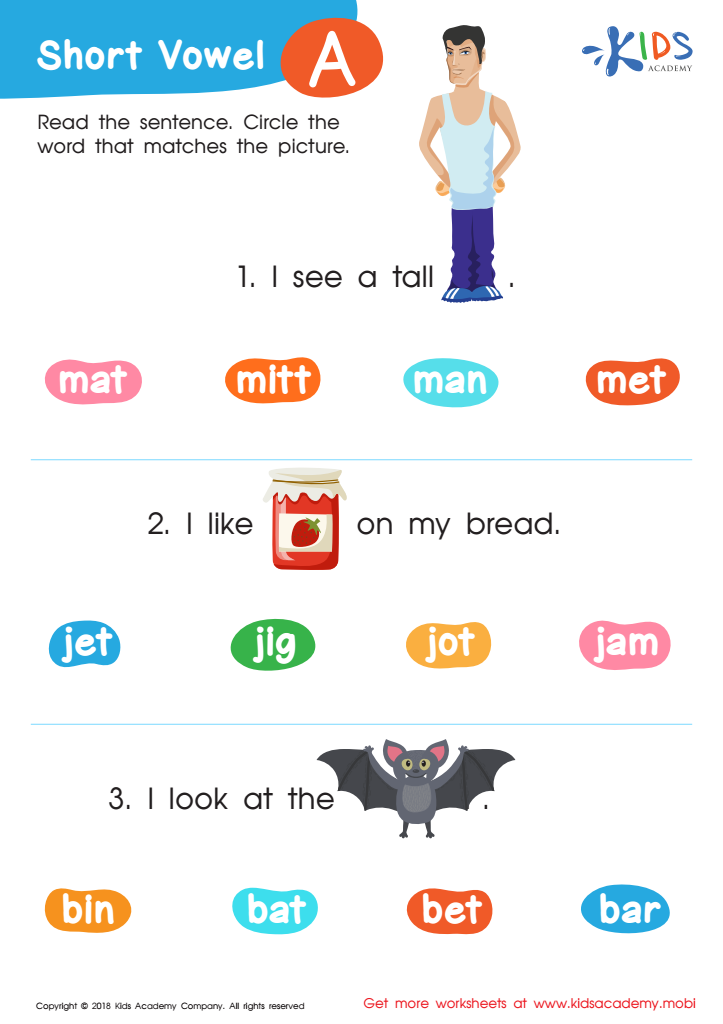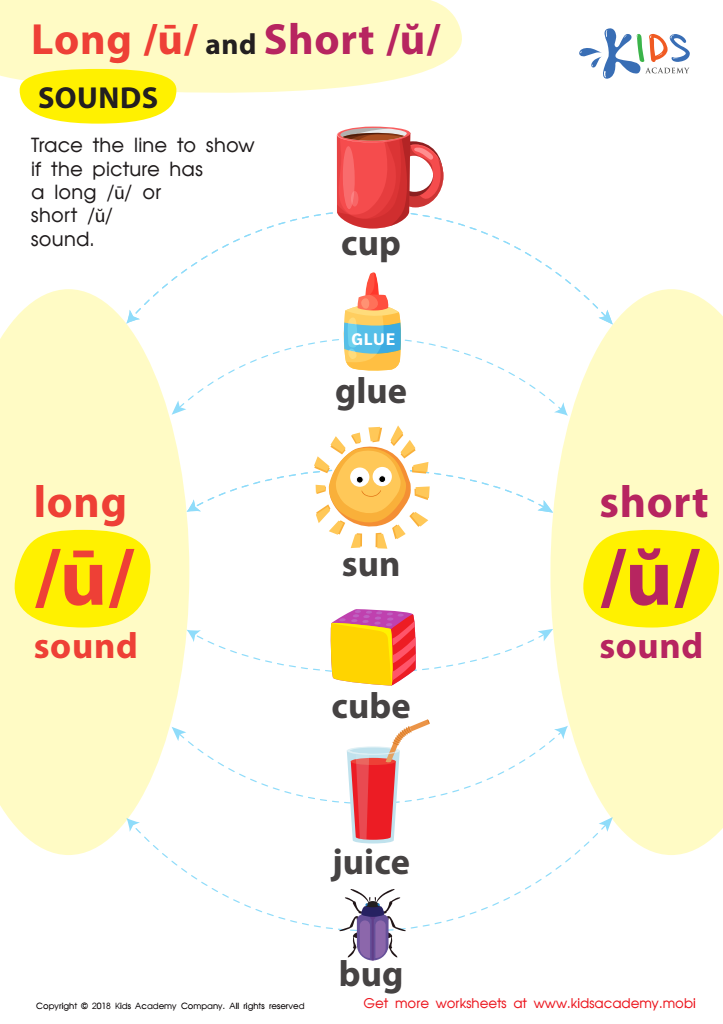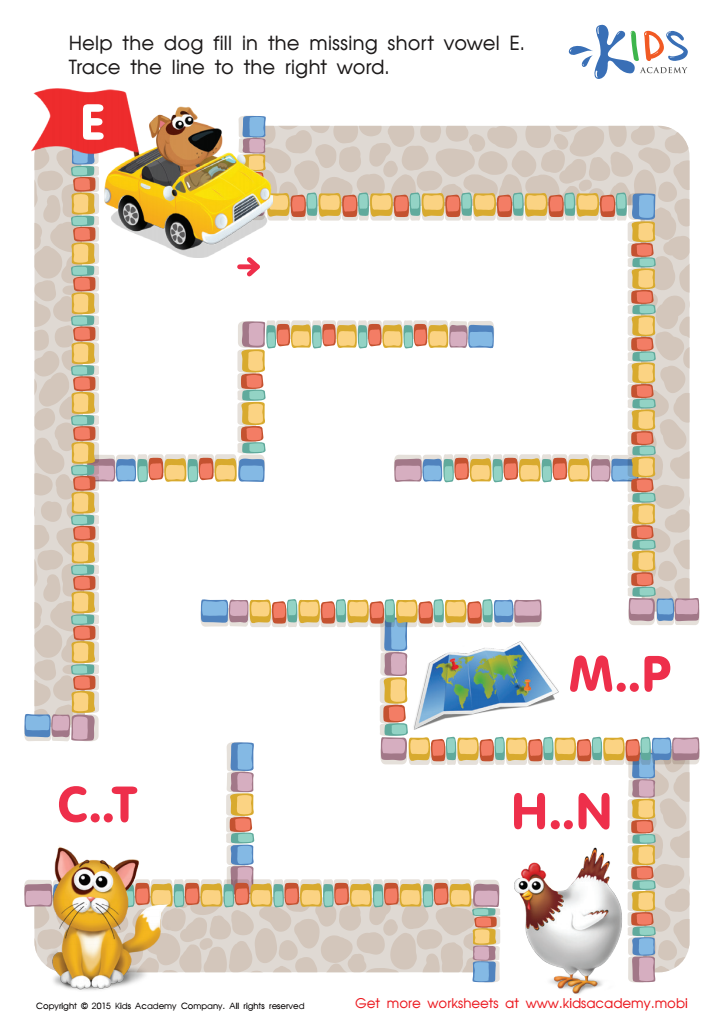Vowel Recognition Letter Recognition Worksheets for Ages 6-7
5 filtered results
-
From - To
Unlock your child's reading potential with our "Vowel Recognition Letter Recognition Worksheets" designed for ages 6-7. These engaging, printable worksheets from Kids Academy focus on helping young learners identify and master vowel sounds and letters. With a variety of fun, educational activities, children will enhance their phonemic awareness and letter identification skills. Perfect for reinforcing classroom learning or providing extra practice at home. Through colorful designs and interactive tasks, our worksheets make learning vowels an enjoyable adventure, setting a strong foundation for future reading success. Download today and watch your child's literacy skills blossom!


Short Vowel /a/ Worksheet


Short Vowels /e/, /i/, and /u/ Worksheet


Reading: Long U and Short U Sounds Worksheet


Long Vowel Maze /o/ and /i/ Worksheet


Short Vowel Sound E Worksheet
At ages 6-7, children are at a critical developmental stage for literacy skills, making vowel and letter recognition essential. Parents and teachers should prioritize these foundational skills because they are crucial building blocks for reading and writing success. Recognizing vowels and letters enhances a child's ability to decode words, which is the ability to understand and pronounce new words by breaking them down into individual sounds. This skill directly impacts reading fluency and comprehension, enabling children to read more quickly and understand what they read.
Children's confidence in reading can be significantly boosted when they are proficient in vowel and letter recognition. They are more likely to enjoy reading, leading to increased practice and, consequently, improved literacy skills. This enthusiasm can spill over into other academic areas, as reading comprehension is integral to subjects like math, science, and social studies.
Furthermore, early mastery of these skills can help identify and support children with potential learning disabilities, allowing interventions to be made at a stage where they can be most effective. By investing time and effort into vowel and letter recognition, parents and teachers can set a strong educational foundation, fostering a lifelong love of reading and learning and ensuring better academic outcomes for children.

 Assign to My Students
Assign to My Students




















